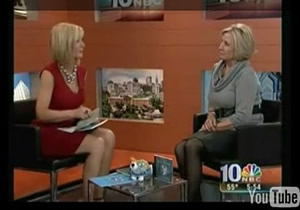The divide and conquer theory, has worked for centuries, in wars, in the wild, in families, in politics, on the playground, on the street and in corporations. Now, this concept is dominating the press and internet. Women are standing up against women. Moms are standing up against moms. Mothers are standing up against daughters and daughters are standing up against mothers. Grandmothers are even standing up against granddaughters.
The argument seems to be: Which is the better mother, the one who works outside of the home or the one who stays at home with the children? At the moment, the winner seems to be the mother, who works outside of the home. Why? Stay at home moms have become the brunt of many jokes. The notion, that these women are often malingerers, is prolific. Amusing comments can be heard everywhere. Some of the people, making the barbs, attempt to cover their proverbial derrieres with a complimentary aside, for the good stay at home moms.
It seems apparent, to the jokesters, that the mom who chooses to stay home, to raise the family has chosen a less honorable profession than the mom who works outside of the home. Negative comments can be heard every where. The divorce courts are filled with demeaning discourses about these stay at home moms. They are not viewed as courageous, for having given up their financial security, their youth and their livelihoods for what they considered to be, the good of their families. They are seen as lazy women who stayed home, eating bon bons, as their husbands worked for a living.
I have yet to hear a joke about a working mom. We know that it is inappropriate to make demeaning remarks, containing racial, religious or sexual overtones. So why do we, as mothers, think that it is OK to demean other mothers? We are doing ourselves, a disservice. Whether a stay at home mom is young or older, educated or not educated, she has made a career choice for reasons of her own. Who has the right, to degrade that choice? What we need to do is support our stay at home moms and help them to be aware of ways that they can protect themselves, in the case of tragedy, divorce or both.

